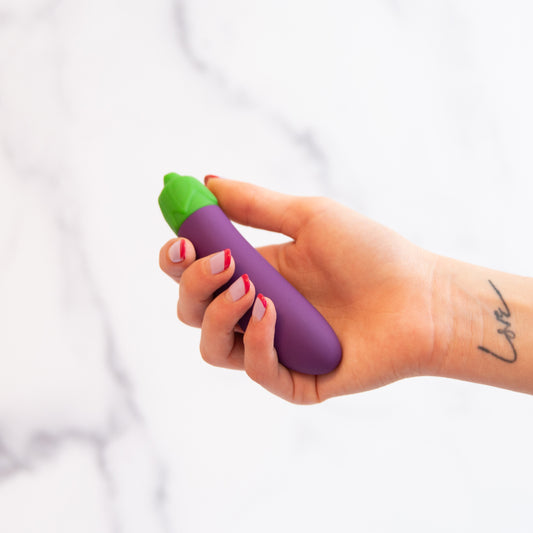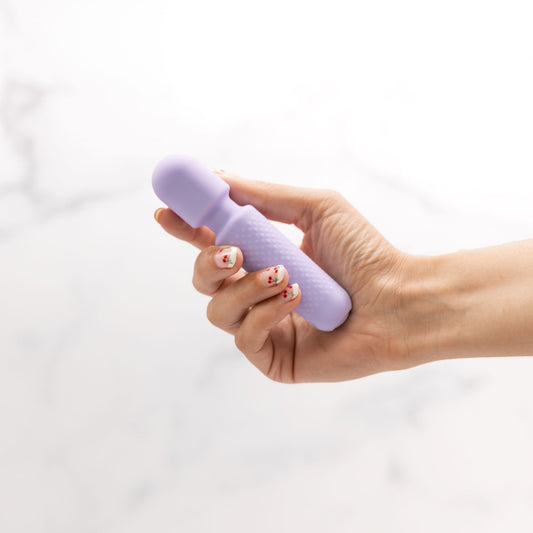Vibrators - What Does the Data Say?
by Deon Black from letstalksex.net
Sometime around our early years, most of us learn that we all have different likes and dislikes. This applies in all areas of our lives, from the basics, like food, to the more complex, like sexuality. No two of us are entirely the same.
People have various arguments to justify hostility against sex toys. However, it mostly revolves around the perception that a sex toy owner is "loose" (are we still using that word in this century?). But in these past few years, the stigma of owning a sex toy has drastically reduced. More specifically, vibrators have seen lots of action.
Vibrators have become a girl's best friend this past decade. Researchers have discovered that an extremely small number of women orgasm through penetrative sex. The rest depends on their clitoris or vulva to stimulate their O. Vibrators are now being seen as a cool (and relatively cheap) way to stimulate your clit during sex or masturbation. A sure way to get that O.
Vibrators are much more publicized nowadays, but how accepted are they? Who's using them? What's the rate of growth? I'll answer all those questions in this article right after we debunk some myths.
Vibrator Origins
History may not be your favorite subject, but some stories from the past are good for a laugh or two. If you like reading about the history of stuff, you've probably heard how vibrators were created as sex toys to help doctors control hysteria in women. This belief was based on the fact that the symptoms would manifest less if the woman in question had an orgasm. Doctors needed something to help them give this strenuous treatment, and ta-da, the vibrator was born. Rachel Maines publicized this theory in her book The Technology of Orgasm: "Hysteria," the Vibrator, and Women's Sexual Satisfaction.
But nowadays, new research is popping up that's debunking this story. According to an article published in the Journal of Positive Sexuality, Ms. Maines' theory has some large holes in it. Hallie Lieberman, who is a historian of technology at the Georgian Institute of Technology, says that before the 1900s, vibrators existed, but not for sexual purposes. They were mostly marketed to doctors for ear, neck, and shoulder pain.
Lieberman has clarified that the doctors living in those times were aware of the female orgasm. Ms. Lieberman also examined the sources for the Maines' theory and didn't find any damning evidence for the "hysteria treatment theory."
What Lieberman did discover were some adverts that were creating a new image for vibrators. This was a trend noticed as early as 1903. But the organizations were bound by the obscenity laws in their states. In 1915, the American Medical Association declared using vibrators medically as a scam. The manufacturers quickly switched gears and started to appeal directly to the consumers, instead of the doctors.
With vibrators being sold as household massagers, it was a while before sexual use of its vibrations were discovered in the mid1900s. To study more about this, you can check here.
The Numbers
As of now, there are just a few vibrator statistics available for public perusal. The most important are the studies done in 2009 at Indiana University. This study was sponsored by Church and Dwight Co. Inc. The two studies focused on 2000 women and 1000 men to determine the amount of vibrator use within each gender per thousand.
The study showed that using a sex toy during sex and masturbation is fairly common. Up to 53% of women have reported using sex toys. 43% of males, ranging from 18-60, also agreed that they had used a sex toy before. That is, over half of the female population in the United States and two-fifths of the male population all use sex toys, as of 2009. This is mindboggling because 2009 wasn't that far away from the end of the repressive 1900s.
What's more, the study also found out that using a vibrator is indicative of positive sexual function and being proactive when it comes to one's sexual health. This means that individuals who use vibrators are more likely to have had a checkup at the gynecologist. It also means that they're more intentional about their body and pleasure during sex. Orgasm during sex is extremely important, and while you may not suffer a breakdown from the lack of it, it's a method of catharsis for your body.
Those who used vibrators scored higher on several aspects of sexual function such as arousal, desire, lubrication, pain, orgasm, and overall function). The researchers asked them to score themselves on these functions. Those who used vibrators scored themselves high. Those who had used a vibrator within the past month scored themselves even higher.
Almost all of the heterosexual men (91%) who participated in the study reported that their use of a vibrator was during sex with a woman. There were no statistical differences in the rate of vibrator usage between heterosexual men and gay or bisexual men. Men who used vibrators shortly before the study scored themselves high on four out of the five domains of sexual function. This is measured by the International Index of Erectile Function (erectile function, intercourse satisfaction, orgasmic function, and sexual desire).
It was also discovered that an overwhelming majority of female vibrator users reported never having any side effects from vibrator use. Those that did report the side effects to be rare and extremely temporary.
Summary of Findings
For all of y'all that don't have time to read the long-ass, science-y text up there, I'll break down everything into four key points.
Those who use vibrators are said to have better sexual function than those who don't. As in, they have better sex because they're intentional about their orgasm.
Vibrator users are also more attuned to their physical, sexual health. They go for more checkups.
Lots of straight men used vibrators during sex with women.
The sex toy industry is rapidly growing. To confirm these findings and discover more, more research is necessary.
This article was written by Deon Black of letstalksex.net





